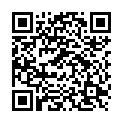|
|
|
| Module code: E501 |
|
2V+1U (3 hours per week) |
|
4 |
| Semester: 5 |
| Mandatory course: yes |
Language of instruction:
German |
Assessment:
Written examination
[updated 11.03.2010]
|
E501. Biomedical Engineering, Bachelor, ASPO 01.10.2011
, semester 5, mandatory course, course inactive since 28.11.2013
E501 Electrical Engineering, Bachelor, ASPO 01.10.2005
, semester 5, mandatory course
|
45 class hours (= 33.75 clock hours) over a 15-week period.
The total student study time is 120 hours (equivalent to 4 ECTS credits).
There are therefore 86.25 hours available for class preparation and follow-up work and exam preparation.
|
Recommended prerequisites (modules):
E105 Digital Electronics
E303 Electronics I
[updated 11.03.2010]
|
Recommended as prerequisite for:
|
Module coordinator:
Prof. Dr.-Ing. Dietmar Brück |
Lecturer:
Prof. Dr.-Ing. Dietmar Brück
[updated 11.03.2010]
|
Learning outcomes:
After completing this module, the student will have a basic understanding of the functional and operating principles of microprocessors and microcontrollers and, in particular, of how hardware and software components interact. Students will be in a position to understand a microcontroller system and to operate the system to accomplish a specified task. The module puts particular emphasis on teaching practically relevant aspects of microprocessor systems.
[updated 11.03.2010]
|
Module content:
1.Fundamentals of digital technology, introduction to computer and memory
circuits, decoding strategies, the underlying structure of a microcomputer with
RAM, ROM and I/O components, program execution, timing diagrams, interrupt
handling, wait states
2.Structure and layout of the experimental computer board with the 80C186
controller, functional principles of the controller, signal assignment and
signal switching, operation of the integrated unit.
3.Interaction of the microcontroller with external peripheral components, such as
parallel interfaces.
4.Guided exercises on the experimental computer board.
[updated 11.03.2010]
|
Teaching methods/Media:
Overhead transparencies, lecture notes, video projector
[updated 11.03.2010]
|
Recommended or required reading:
A CD containing all study materials will be issued at the start of the course.
Additional literature:
[0] 80C186EB/80C188EB, Microprocessor Userís Manual, Intel
[1] C167CR Userís Manual V.2.0, Infineon Technologies, 03.96
[2] C167CR Userís Manual V.3.1, Infineon Technologies, 2000
[3] Instruction Set Manual V2.0, Infineon Technologies, 2001
[4] Mikrocomputer, Martin Horacher, TU Wien, 1999
[5] MC-Tools 15, Johannis, Feger + Co. Verlag 1994
[6] Schultes / Pohle,80C166 Mikrocontroller, Franzis Verlag, 1994
[7] Rolf Klaus, Der Mikrocontroller C167, VDF Hochschulverlag, 2000
[updated 11.03.2010]
|


